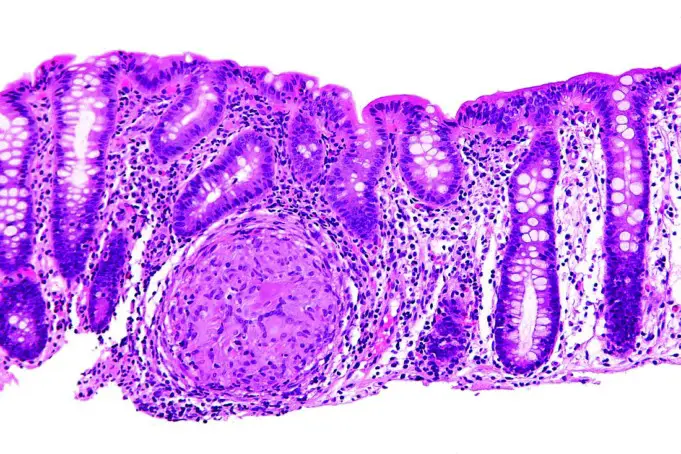Leaky gut syndrome is a medical condition that has gained a lot of attention in recent years. In fact, it is a subject of hot debate as those of conventional medicine have refused to acknowledge its existence.
Meanwhile, this condition is acknowledged, diagnosed, and treated in the world of natural medicine. As a naturopath, I personally believe this condition exists. And with time, conventional medicine will come to see their mistakes as it has happened in the past in many cases.
Leaky gut is also known as “intestinal permeability. This condition occurs when the gaps in the walls of your intestines start getting loosed.
When this happens, it becomes easier for substances such as undigested food matter, bacteria, and toxins to enter your bloodstream through the permeable intestinal walls.
Leaky gut syndrome has been associated with many chronic diseases, including autoimmune diseases. Leaky gut syndrome also causes celiac diseases and type I diabetes.
How Leaky Gut Syndrome Affects Your Digestive System?
Your digestive system is made up of many organs whose main work is to break down the foods you eat. These organs also absorb nutrients and water and expel waste products.
The lining in your intestine acts as a barrier preventing harmful substances from entering into your bloodstream. The absorption of water and nutrients take place in your intestines.
Your intestines have small gaps or tight junctions. These allow nutrients and water to go into your bloodstream. The ease these substances use to pass into the bloodstream is known as intestinal permeability.
Causes of Leaky Gut Syndrome
Some health conditions can loosen these tight junctions in your intestines. Although the exact cause of this condition is not yet known, it is seen in several chronic diseases.
It occurs alongside type I diabetes and celiac disease. The protein that regulates the tight junctions of the intestines is Zonulin. High levels of this protein in the body loose these tight junctions and increase your risks of intestinal permeability.
There are two main factors that increase the levels of Zonulin in the body; they are bacteria and gluten. There is strong evidence that gluten increases intestinal permeability in people that have celiac disease.
Other factors apart from Zonulin that can increase intestinal permeability are the long-term use of nonsteroidal anti-inflammatory drugs (NSAIDs) and high levels of inflammatory mediators.
Examples of inflammatory mediators are interleukin 13 (IL-13) and tumor necrosis factor (TNF). Examples of NSAIDs are ibuprofen and aspirin. Another cause of intestinal permeability is low levels of friendly gut bacteria.
This is known as gut dysbiosis. It is a condition characterized by an imbalance in the levels of gut bacteria.
Other factors that increase the levels of Zonulin in the body are:
- Excessive sugar intake
- Excessive intake of alcohol
- Inflammation
- Overgrowth of yeast
- Poor gut health
- Stress
- Nutrient deficiencies such as zinc, magnesium, and vitamins A and D.
Common Signs and Symptoms of Leaky Gut
Brain problems
This can be expressed in different forms such as mood swings, reduced mental functions, and even autism. Leaky gut has been linked to various neurocognitive problems.
Skin problems
Inflammatory skin conditions are another common sign of leaky gut syndrome. The connection between the skin and gut has been established for over 70 years.
Leaky gut can cause many skin conditions such as psoriasis and acne.
Nutrient malabsorption
Gut problems can cause absorption problems thereby leading to nutritional deficiencies. The most common nutritional deficiencies caused by leaky gut are vitamin B12 deficiency, digestive enzymes, and magnesium deficiency.
Thyroid Problems
Leaky gut affects the thyroid gland and it is one of the leading causes of Hashimoto’s disease.
Autoimmune disease
Leaky gut triggers inflammation in the body. This, in turn, raises immune reaction which can lead to an overactive immune system. Gluten activates the protein “Zonulin” and this causes intestinal permeability.
Inflammatory bowel disease
People with leaky gut also suffer from ulcerative colitis an irritable bowel syndrome.
Food sensitivity
Due to the unwanted substances entering the bloodstream, people with leaky gut have an overactive immune system. This leads to the creation of various antibodies.
This would make the body susceptible to some antigens in foods like gluten and dairy. Allergies are one of the most common symptom of leaky gut.
How Leaky Gut Syndrome Affect the Body?
When the tight junctions in your intestines get loosed, harmful substances like bacteria, undigested food, and toxins can enter the bloodstream and cause problems.
This would trigger widespread inflammation in the body. This, in turn, would create an immune reaction and cause many health problems. The complications created by these are known collectively as leaky gut syndrome.
This syndrome gives rise to a lot of health problems like migraines, autoimmune diseases, autism, skin conditions, food sensitivities, chronic fatigue, brain fog, and many more.
Some of the serious health conditions caused by leaky gut are:
- Excessive weight gain/obesity
- Gastric ulcer
- Chronic fatigue syndrome
- Infectious diarrhea
- Parkinson’s disease
- Irritable bowel syndrome (IBS)
- Autoimmune diseases (MS, lupus, Hashimoto’s, type I diabetes)
- Inflammatory bowel disease (ulcerative colitis and crohn’s)
- Obesity-related metabolic disease such as heart disease, type II diabetes, and fatty liver
- Small intestine bacterial overgrowth
- Disorders of the thyroid gland
- Celiac disease (If you suspect you have leaky gut syndrome, test for celiac disease. Their symptoms are overlapping)
- Chronic inflammatory disease like arthritis
- Colorectal and esophageal cancers
- Acute inflammatory diseases like multiple organ failure, SIRS, sepsis, etc.
- Respiratory infections
- Allergies
Natural remedies for leaky gut syndrome

There are natural foods you can eat to improve the conditions and functions of your digestive system. Your diet plays a great role in your healing.
One thing you have to do is to increase your daily intake of foods that increase the population of beneficial bacteria in your gut.
Leaky gut syndrome has been linked to the overpopulation of unhealthy bacteria in the gut. Healthy bacteria would help to check the growth and population of these bad bacteria.
Increase your daily intake of the following foods to heal this condition and improve the health of your gut.
- Vegetables: These include Brussels sprouts, broccoli, carrots, arugula, cabbage, Swiss chard, eggplant, kale, spinach, beetroot, ginger, Zucchini, and mushrooms.
- Nuts: These include nuts like almonds, peanuts, tiger nuts, walnuts, and nuts milk.
- Root and tubers: These include carrots, yams, squash, turnips, sweet potatoes, and potatoes.
- Healthy beverages: These include plant-based milk, plain water, lemon water, herbal teas, Kombucha, and bone broth.
- Fermented vegetables: These are rich sources of healthy gut bacteria. Examples are miso, tempeh, sauerkraut, and kimchi.
- Cultured dairy products: These are also rich sources of healthy gut bacteria. Examples of cultured dairy are the traditional buttermilk, Greek yogurt, kefir, and yogurt.
- Fruits: Take in varieties of fruits daily to help build and heal your digestive system. Fruits that would help your digestive system are bananas, grapes, berries, coconuts, pineapple, apples, limes, lemon, kiwi, oranges, papaya, passion fruit, and mandarin.
- Herbs and spices: These include all herbs and spices. You can add them to your meals or take them as tea.
- Sprouted Seeds: Take in sprouted seeds at least once daily. These include sunflower seeds, flaxseeds, chia seeds, sesame seeds, fenugreek, etc.
- Meats and eggs: From naturally raised animals are also good. Avoid commercially-raised animals.
- Grains: Gluten-free grains and oats help your digestive system a lot. These include buckwheat, brown and white rice, amaranth, teff, and sorghum.
- Fish: Oily fishes are rich in omega-3 fatty acids and they help you recover. These include herring, tuna, and salmon.
- Healthy fats: These include coconut oil, olive oil, avocado oil, and even avocados.
Foods to Avoid to Prevent leaky Gut
There are certain foods you should avoid to prevent and aid the healing of leaky gut syndrome. Some foods trigger inflammation in your body. These foods also promote the growth of unhealthy bacteria over the good ones.
This condition can lead to various chronic diseases. The foods mentioned below harm the healthy bacteria in your gut. They even cause problems in your digestive system such as diarrhea, constipation, and bloating.
Some of the foods to avoid are:
- Unhealthy beverages: This includes sugary drinks, carbonated beverages, and alcohol.
- Wheat-based products: These include couscous, wheat flour, cereals, bread, pasta.
- Sauces: Sauces used in salad dressings such as hoisin sauce, teriyaki, and soy should be avoided.
- Gluten grains: Grains containing gluten should be avoided.
- Processed meats: Avoid hot dogs, bacon, cold cuts, and deli meats.
- Artificial sweeteners: found in processed foods and drinks are dangerous. Avoid them. They include HFCS, aspartame, sucralose, and saccharin.
- Baked goods: These include pizza, pastries, pies, cookies, muffins, and cakes.
- Refined oils: Safflower, soybean, sunflower, and canola oil
- Snack: Like crackers, pretzels, popcorn, muesli bars, etc.
- Dairy products: Avoid ice cream, cheese, and milk.
- Junk foods: These include fast foods like noodles, potato chips, sugary cereals, candy bars, etc.
Lifestyle Changes to Make
There are certain lifestyle changes you have to make to hasten healing and overcome this condition.
- Avoid alcohol: You have to avoid alcohol or reduce your intake of alcohol. Excess alcohol in your body would increase your intestinal permeability. It does this by interacting with certain proteins.
- Probiotic supplement: A good probiotic supplement can help increase the population of good bacteria in your gut. Make sure you buy a quality supplement. Probiotics are also found abundantly in fermented foods.
- Rest well: You need to increase your sleep time. Sleep boosts the immune system and hastens healing. Lack of adequate sleep also affects the population of good bacteria in your gut. Sleep deficiency also increases intestinal permeability.
- Reduce stress: High level of stress harm the beneficial bacteria in your gut.
- Quit smoking: Smoking Increases your risk factor for bowel disease. It also increases inflammation in your digestive system. When you quit smoking, the population of healthy bacteria in your gut would increase. This would also reduce the population of harmful bacteria in your gut.
- Limit your use of NSAIDs: Long-term use of these drugs triggers leaky gut in the body. These drugs should only be used in life-threatening conditions and when natural remedies don’t work (happens rarely).
Sources
- Beneficial Microbes: The pharmacy in the gut. NCBI
- Chapter 9 – Modulation of the Intestinal Tight Junctions Using Bacterial Enterotoxins SD
- Zonulin and its regulation of intestinal barrier function: the biological door to inflammation, autoimmunity, and cancer. NCBI
- Zonulin, regulation of tight junctions, and autoimmune diseases. NCBI
- Host-dependent zonulin secretion causes the impairment of the small intestine barrier function after bacterial exposure. NCBI
- Intestinal permeability defects: is it time to treat? NCBI
- Intestinal permeability, gut-bacterial dysbiosis, and behavioral markers of alcohol-dependence severity. NCBI
- Epithelial myosin light chain kinase activation induces mucosal interleukin-13 expression to alter tight junction ion selectivity. NCBI
- Gastrointestinal physiology and functions. NCBI
- Zonulin Regulates Intestinal Permeability and Facilitates Enteric Bacteria Permeation in Coronary Artery Disease. NCBI












